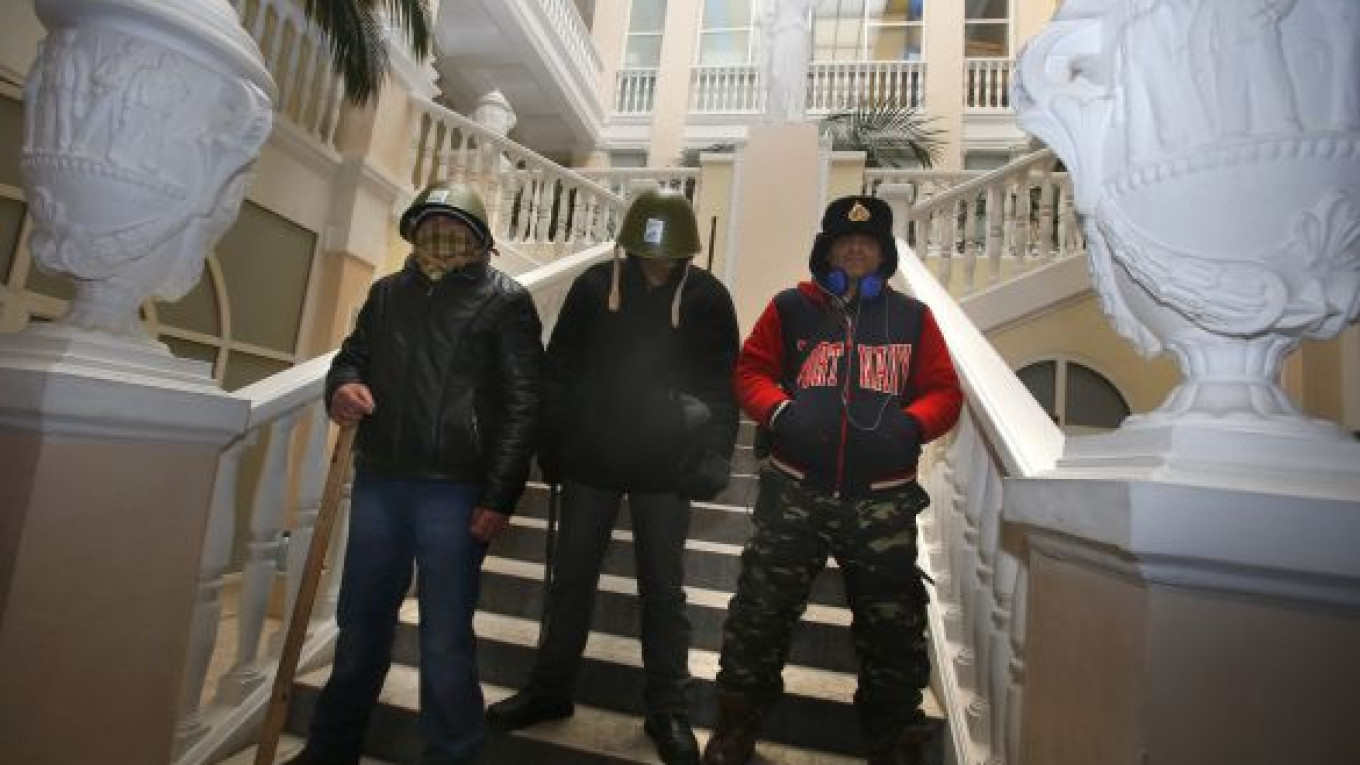Ukraine's justice minister threatened on Monday to press for a state of emergency if protesters did not vacate a ministry building they occupied overnight in the third such action in street protests against President Viktor Yanukovych's rule.
A state of emergency would limit movements of people and vehicles, ban rallies, marches and strikes, suspend the activity of political parties and introduce a curfew.
The main 'frontline', where radical activists face police lines in front of Dynamo football stadium, remained calm. But about 50 masked men stormed into the justice ministry building in downtown Kiev and refused police orders to leave.
Raising tension ahead of an emergency session of parliament on Tuesday called to defuse the crisis in which six people have been killed, Justice Minister Olena Lukash said: "If the justice ministry building is not vacated immediately, I will be forced to appeal … to the Council for National Security and Defense with a demand that an introduction of a state of emergency in the country be discussed."
The occupation of the ministry building was the third such action in four days.
Protesters occupied the agricultural ministry on Friday and only agreed to leave the energy ministry which they entered on Saturday after the minister warned their action could disrupt energy supplies in the country.
Yanukovych triggered the unrest in November when he abruptly abandoned plans to sign association and free-trade deals with the European Union, opting instead to tighten economic ties with Russia.
Apart from clashes between radicals and police, several hundred people camp now round the clock on Kiev's Independence Square and along an adjoining thoroughfare.
The unrest has spilled over into other regions of the country of 46 million people, including areas of eastern Ukraine and the south which are traditionally pro-Yanukovych areas.
Ukraine on Monday announced it would draw on another $2 billion of credit — adding to $3 billion already received for purchase of a bond — from a $15 billion bailout package offered by Moscow after the former Soviet republic walked away from the deal with the EU.
But though the Russian aid package will help Ukraine handle $8 billion of foreign debt this year and boost depleted reserves, this does not seem to be impressing thousands on the streets who are pressing for hard political concessions from Yanukovych.
Despite Lukash's warning, most analysts believe that declaring a state of emergency is not something envisaged by the Yanukovych leadership now, since it would have a drastic effect on Ukraine's relations with the West and squeeze foreign investment further.
Ukrainian Defense Minister Pavlo Lebedev repeated at the weekend that, according to the constitution, the army cannot be used in settling internal conflicts in the country.
A Message from The Moscow Times:
Dear readers,
We are facing unprecedented challenges. Russia's Prosecutor General's Office has designated The Moscow Times as an "undesirable" organization, criminalizing our work and putting our staff at risk of prosecution. This follows our earlier unjust labeling as a "foreign agent."
These actions are direct attempts to silence independent journalism in Russia. The authorities claim our work "discredits the decisions of the Russian leadership." We see things differently: we strive to provide accurate, unbiased reporting on Russia.
We, the journalists of The Moscow Times, refuse to be silenced. But to continue our work, we need your help.
Your support, no matter how small, makes a world of difference. If you can, please support us monthly starting from just $2. It's quick to set up, and every contribution makes a significant impact.
By supporting The Moscow Times, you're defending open, independent journalism in the face of repression. Thank you for standing with us.
Remind me later.


